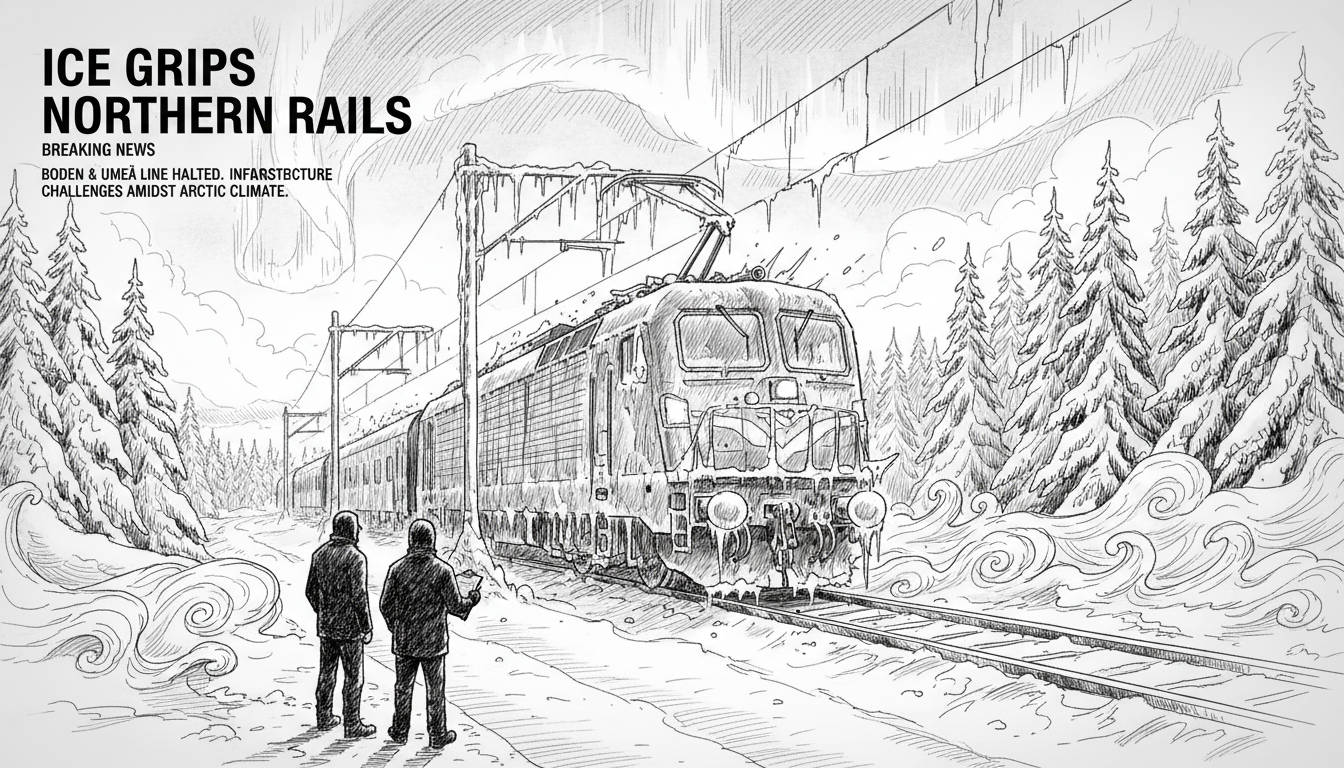Rail traffic between Boden and Umeå in northern Sweden has stopped completely due to severe ice buildup on overhead power lines. The Swedish Transport Administration began investigating the route early this morning to assess the extent of the ice formation. By 9:30 AM, officials had not yet received any feedback about the status of the power lines.
Sweden's meteorological institute issued a yellow weather warning for snowfall combined with strong winds across large parts of Norrbotten county. The warning specifically mentions risks for delays or cancellations in public transportation services.
This disruption affects one of northern Sweden's crucial transportation corridors. The Boden-Umeå rail line serves as a vital connection between these two important northern cities. It supports both passenger travel and freight movement across a region where alternatives are limited.
Ice-related rail disruptions represent a recurring challenge for Sweden's northern transportation infrastructure. The country invests heavily in winter maintenance, but extreme weather conditions sometimes overwhelm even the most prepared systems. These incidents highlight the ongoing battle between infrastructure and nature in Scandinavia's Arctic regions.
Local commuters and businesses relying on rail transport now face significant logistical challenges. The timing coincides with normal weekday travel patterns, potentially stranding passengers and disrupting supply chains. Road alternatives exist but may prove treacherous given the same weather conditions causing the rail issues.
Swedish rail authorities have extensive experience with winter operations. They deploy specialized equipment and teams to handle ice accumulation. The current situation demonstrates how even robust systems can be temporarily overwhelmed by nature's force.
Northern Sweden's transportation network must balance reliability with the realities of operating in extreme climates. This incident serves as a reminder of the infrastructure challenges facing communities above the Arctic Circle. The region's economic development depends on maintaining functional transportation links despite harsh environmental conditions.
Travelers should check with transport authorities for updates on restoration efforts. Officials typically provide regular updates as assessment teams complete their inspections and repair crews begin their work. The duration of this disruption remains uncertain until investigators determine the full extent of the damage.
What does this mean for international visitors to northern Sweden? The region attracts tourists seeking winter experiences and northern lights viewing. Transportation reliability remains crucial for this important economic sector. Temporary disruptions, while inconvenient, demonstrate the authentic Arctic conditions that many travelers actually seek to experience.

